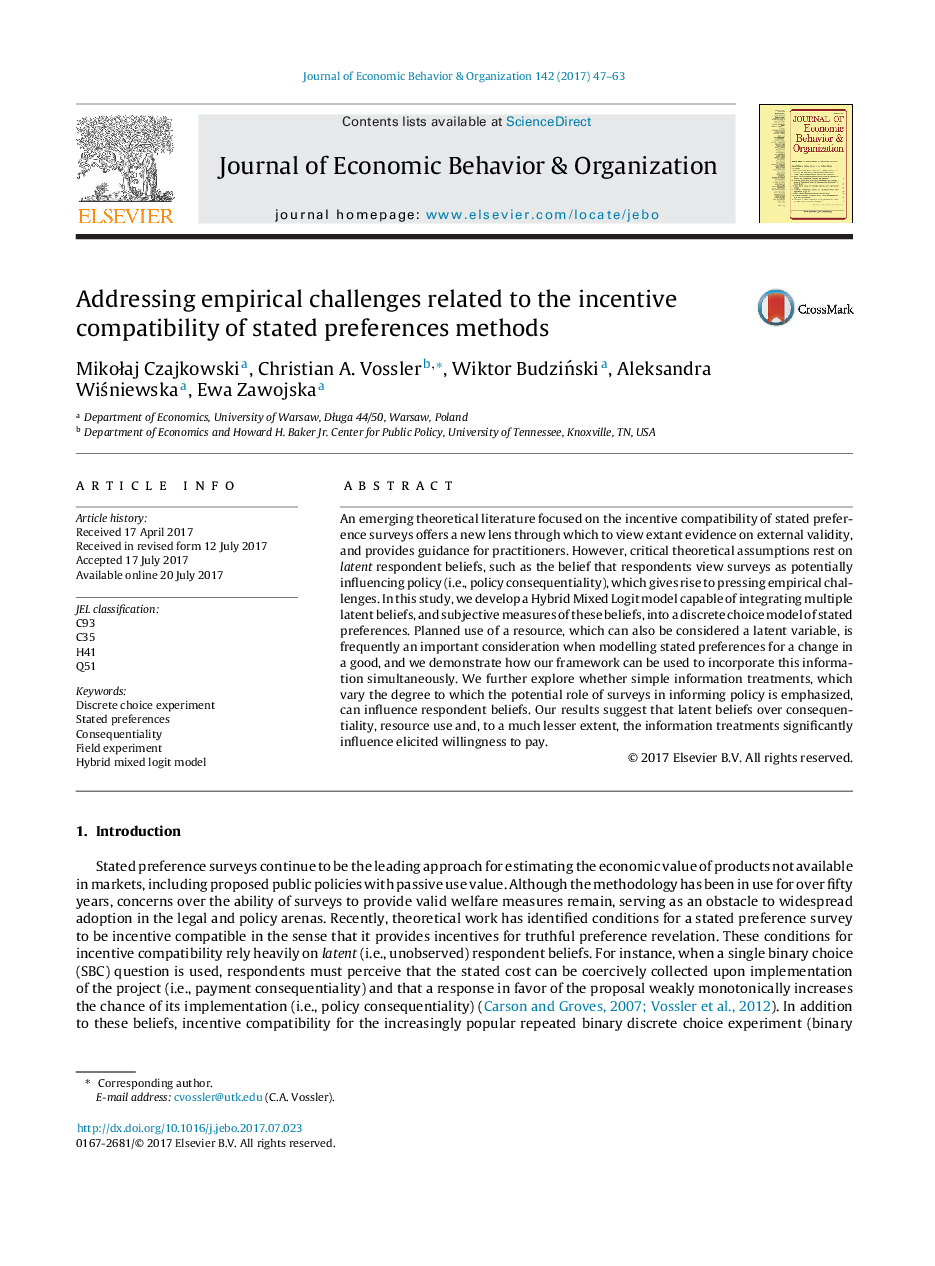| کد مقاله | کد نشریه | سال انتشار | مقاله انگلیسی | نسخه تمام متن |
|---|---|---|---|---|
| 5034452 | 1471625 | 2017 | 17 صفحه PDF | دانلود رایگان |
- Stated preference surveys are the leading approach for evaluating proposed policies.
- Truthful demand revelation using preference surveys is theoretically tied to unobserved beliefs.
- We develop a hybrid mixed logit model for incorporating survey measures of unobserved beliefs into stated choice models.
- The estimation framework addresses specification issues such as measurement error and preference heterogeneity.
- We test whether information signals of consequentiality, important for truthful demand revelation, influences preferences.
An emerging theoretical literature focused on the incentive compatibility of stated preference surveys offers a new lens through which to view extant evidence on external validity, and provides guidance for practitioners. However, critical theoretical assumptions rest on latent respondent beliefs, such as the belief that respondents view surveys as potentially influencing policy (i.e., policy consequentiality), which gives rise to pressing empirical challenges. In this study, we develop a Hybrid Mixed Logit model capable of integrating multiple latent beliefs, and subjective measures of these beliefs, into a discrete choice model of stated preferences. Planned use of a resource, which can also be considered a latent variable, is frequently an important consideration when modelling stated preferences for a change in a good, and we demonstrate how our framework can be used to incorporate this information simultaneously. We further explore whether simple information treatments, which vary the degree to which the potential role of surveys in informing policy is emphasized, can influence respondent beliefs. Our results suggest that latent beliefs over consequentiality, resource use and, to a much lesser extent, the information treatments significantly influence elicited willingness to pay.
Journal: Journal of Economic Behavior & Organization - Volume 142, October 2017, Pages 47-63
